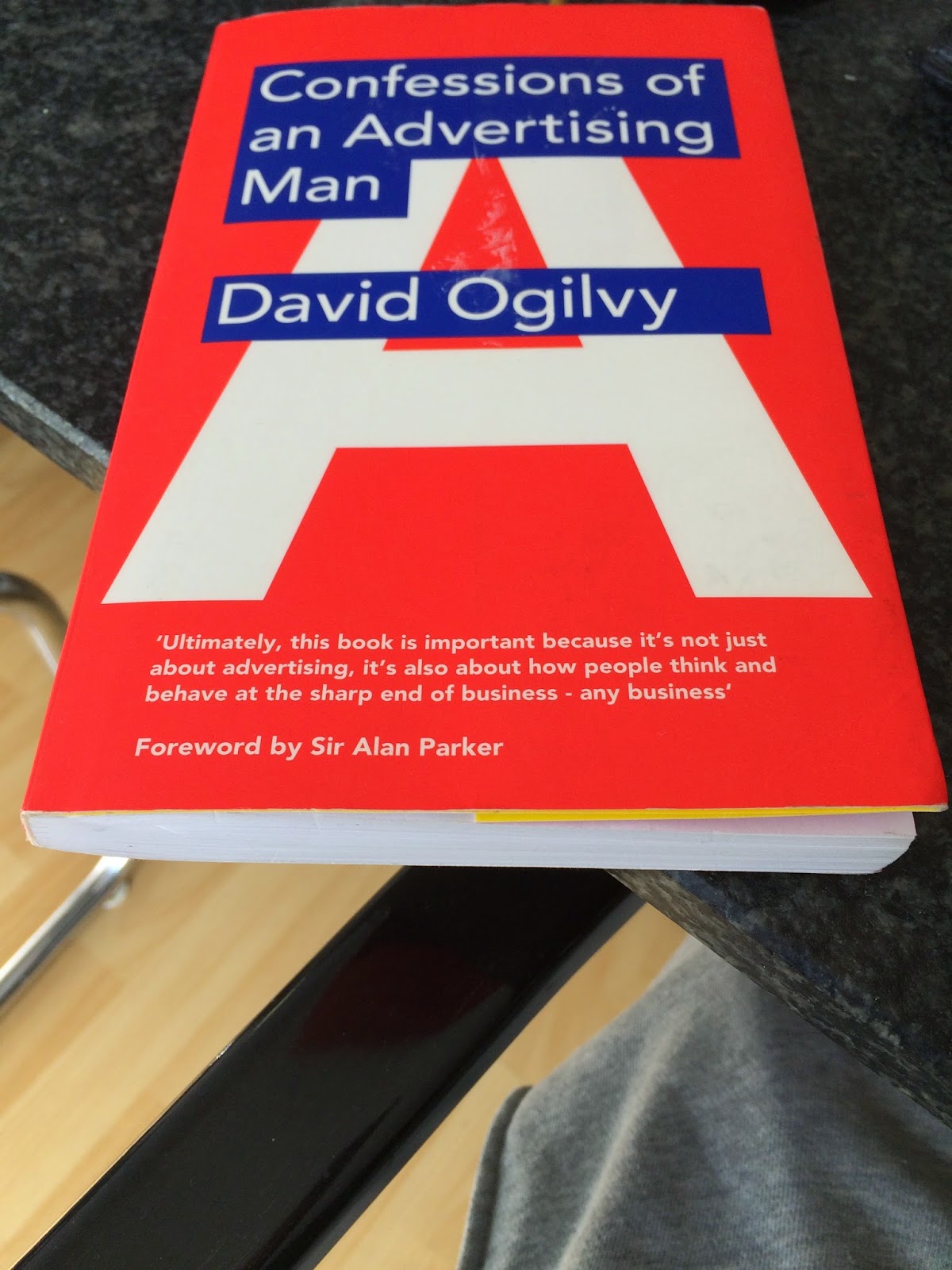“We hire
gentlemen with brains.” (Ogilvy, 1963, p.20).
“Any damn
fool can put on a price reduction, but it takes brains and perseverance to
create a brand.” (Ogilvy, 1963, p.22). “Ask a drug addicted brand manager what
happened to his share of the market after the delirium of the deal subsided.”
(Ogilvy, 1963, p.23).
“I am
almost incapable of logical thought, but I have developed techniques for
keeping open the telephone line to my unconscious, in case that disorderly
repository has anything to tell me. I hear a great deal of music. I am on
friendly terms with John Barleycorn. I take long hot baths. I garden. I go into
retreat among the Amish. I watch birds. I go for long walks in the country. And
I take frequent vacations, so that my brain can lie fallow – no golf, no
cocktail parties, no tennis, no bridge, no concentration; only a bicycle.
While thus
employed in doing nothing, I receive a constant stream of telegrams from my
unconscious, and these become the raw material for my advertisements. But more
is required: hard work, an open mind, and ungovernable curiosity.” (Ogilvy,
1963, p.48).
“But I regard the hunt for new clients as a
sport … if you play it grimly you will die of ulcers. If you play it with
lighthearted gusto, you will survive your failures without losing sleep. Play
to win, but enjoy the fun” (Ogilvy, 1963, p.65).
“I have
never wanted to get an account so big, that I could not afford to lose it. The
day you do that, you commit yourself to living with fear. Frightened agencies
lose the courage to give candid advice; once you lose that you become a lackey”
(Ogilvy, 1963, p.73).
“I always
tell prospective clients about the chinks in our armour. I have noticed that
when an antique dealer draws my attention to flaws in a piece of furniture, he
wins my confidence” (Ogilvy, 1963, p.82).
When he did
a bad ad to appease to the client, staff thought he had gone mad and six month
later O&M was fired anyways. “For several years afterward I found it
impossible to get any serious marketing man to join Ogilvy, Benson & Mather
until I had told him that my opinion of my idiotic Rinso campaign was as low as
his own. This episode taught me that it does not pay to appease clients on
matters of grand strategy. One Munich was enough.” (Ogilvy, 1963, p.92).
“Bad
advertising can unsell a product.” (Ogilvy, 1963, p.100).
“Frightened
people are powerless to produce good advertising.” (Ogilvy, 1963, p.101).
„Committees
can criticize advertising, but they should never be allowed to create them“
(Ogilvy, 1963, p.108).
“My
observation ihas been that mediocre men recognize genius, resent it, feel
compelled to destroy it.” (Ogilvy, 1963, p.115).
“a good advertisement is one which sells the
product without drawing attention to itself.” (Ogilvy, 1963, p.118).
“When we
advertise Shell, we give the consumer facts, many of which other gasoline
marketers could give, but don’t” (Ogilvy, 1963, p.124).
“The
average woman now reads only four of the advertisements which appear in the
average magazine. She glances at more, but one glance is enough to tell her
that the advertisement is too boring to read.” (Ogilvy, 1963, p.125).
“We make
advertisements that people want to read. You can’t save souls in an empty
church.” (Ogilvy, 1963, p.125).
“A lot of advertisements and television
commercials look like the minutes of a committee meeting.” (Ogilvy, 1963, p.126).
“they use
it (research) as a drunkard uses a lamppost, for support rather than for
illumination.” (Ogilvy, 1963, p.128).
“Most
manufacturer are reluctant to accept any limitation on the image of their
brand. They want it to be all things to all people.” (Ogilvy, 1963, p.128).
“A steady diet of price-off promotions lowers
the esteem in which the consumer holds the product; can anything which is
always sold at a discount be desirable?” (Ogilvy, 1963, p.130).
“nobody has
ever built a brand by imitating somebody else’s advertising.” (Ogilvy, 1963,
p.131).
“A good
advertisement has this in common with drama and oratory; that it must be
immediately comprehensible and directly moving.” (Ogilvy, 1963, p.142).
“There is
no need for advertisements that look like advertisements.” (Ogilvy, 1963, p.151).
“There are
very fewproducts which do not benefit from being given a First-Class ticket
through life.” (Ogilvy, 1963, p.155).
“As a
private person, I have a passion for landscape, and I have never seen one which
was improved by a billboard.” (Ogilvy, 1963, p.156).
“A habit of graceful surrender on trivial
issues will make you difficult to resist on those rare occasions when you must
stand and fight on a major issue” (Ogilvy, 1963, p.176).
“My
experience has been that it is relatively easy for advertising to persuade
consumers to try a new product. But they grow maddeningly deaf to the
advertising of products which have been around for a long time.” (Ogilvy, 1963,
p.182).
“I am less
offended by obscenity than by tasteless typography, banal photographs, clumsy
copy, and cheap jingles.” (Ogilvy, 1963, p.193).
“Tell the truth but make the truth fascinating”
(Ogilvy, 1963, p.195).
“Tolerate genius” (Ogilvy, 1963, p.195).
“We prefer the discipline of knowledge to the
anarchy of ignorance” (Ogilvy, 1963, p.195).

No comments:
Post a Comment